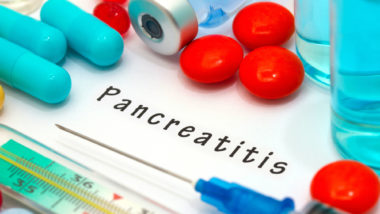 Certain diabetes medications may lead to a flesh eating infection by necrotizing fasciitis bacteria, a rare but life threatening condition.
Certain diabetes medications may lead to a flesh eating infection by necrotizing fasciitis bacteria, a rare but life threatening condition.
In late August 2018, the U.S. Food and Drug Administration (FDA) announced that SGLT2 inhibitors were linked to Fournier’s gangrene, a rare infection by necrotizing fasciitis bacteria. SGLT2 inhibitors are a class of type-2 diabetes medications and include Steglujan, Invokana, and others.
“Fournier’s gangrene is an extremely rare but life-threatening bacterial infection of the tissue under the skin that surrounds muscles, nerves, fat, and blood vessels of the perineum,” the FDA states in their safety warning. “The bacteria usually get into the body through a cut or break in the skin, where they quickly spread and destroy the tissue they infect.”
Even without taking SGLT2 inhibitors such as Steglujan, diabetes patients are at an increased risk for Fournier’s gangrene because excess glucose is processed out of the body through urine. This makes the genital environment rich in sugar, allowing necrotizing fasciitis bacteria to thrive. However, studies suggest that treatment with SGLT2 inhibitors may increase the risk for the life-threatening infection.
The FDA reported that 12 individuals developed a necrotizing fasciitis bacteria infection between March 2013 and May 2018. While this is still relatively rare, considering the millions of prescriptions for SGLT2 inhibitors, the FDA notes that over the course of 30 years there were only six cases of Fournier’s gangrene in patients taking other diabetes medications.
“Fournier’s gangrene developed within several months of the patients starting an SGLT2 inhibitor and the drug was stopped in most cases,” the FDA reports. “All 12 patients were hospitalized and required surgery. Some patients required multiple disfiguring surgeries, some developed complications, and one patient died.”
Necrotizing fasciitis bacteria often attacks the scrotum and penis, which can lead to amputation and tissue removal due to the damage the condition causes to tissue, blood vessels, and nerves. Although men are more likely to contract the necrotizing fasciitis bacteria infection, women taking SGLT2 inhibitors such as Steglujan have also developed the condition, according to the FDA.
Due to the new relationship between necrotizing fasciitis bacteria and SGLT2 inhibitors, the FDA is requiring new warnings to be added to the patient medication guide in the drug class so that patients are informed about the risks before treating their type-2 diabetes with medications such as Steglujan.
The FDA has warned that anyone taking SGLT2 inhibitors should seek immediate medical attention if they think they are suffering from Fournier’s gangrene. Symptoms such as “tenderness, redness, or swelling of the genitals or the area from the genitals back to the rectum”, fever over 100.4 F, or other infection symptoms could be warning signs for the serious condition.
Although Fournier’s gangrene is a horrifying condition, patients have been warned not to stop taking their SGLT2 inhibitor medications without doctor supervision. Untreated diabetes can have serious health consequences which could be life-threatening. Therefore, the FDA recommends that all patients contact their physician if they want to change their type-2 diabetes treatment plan.
Join a Free Diabetes Medications & Flesh-Eating Infection Lawsuit Investigation
The type-2 diabetes medications linked to the flesh-eating infection include:
- Invokana
- Invokamet/Invokamet XR
- Farxiga
- Xigduo XR
- Qtern
- Jardiance
- Glyxambi
- Synjardy/Synjardy XR
- Steglato
- Segluromet
- Steglujan
If you or a loved one took one of the type-2 diabetes medications listed above and suffered from a flesh-eating genital infection, you may qualify to join this diabetes medication lawsuit investigation. Fill out the FREE form on this page for more information.
ATTORNEY ADVERTISING
Top Class Actions is a Proud Member of the American Bar Association
LEGAL INFORMATION IS NOT LEGAL ADVICE
Top Class Actions Legal Statement
©2008 – 2025 Top Class Actions® LLC
Various Trademarks held by their respective owners
This website is not intended for viewing or usage by European Union citizens.
Get Help – It’s Free
Join a Free Diabetes Medications & Flesh-Eating Infection Lawsuit Investigation
If you qualify, an attorney will contact you to discuss the details of your potential case at no charge to you.
PLEASE NOTE: If you want to participate in this investigation, it is imperative that you reply to the law firm if they call or email you. Failing to do so may result in you not getting signed up as a client or getting you dropped as a client.
E-mail any problems with this form to:
[email protected].
Oops! We could not locate your form.












